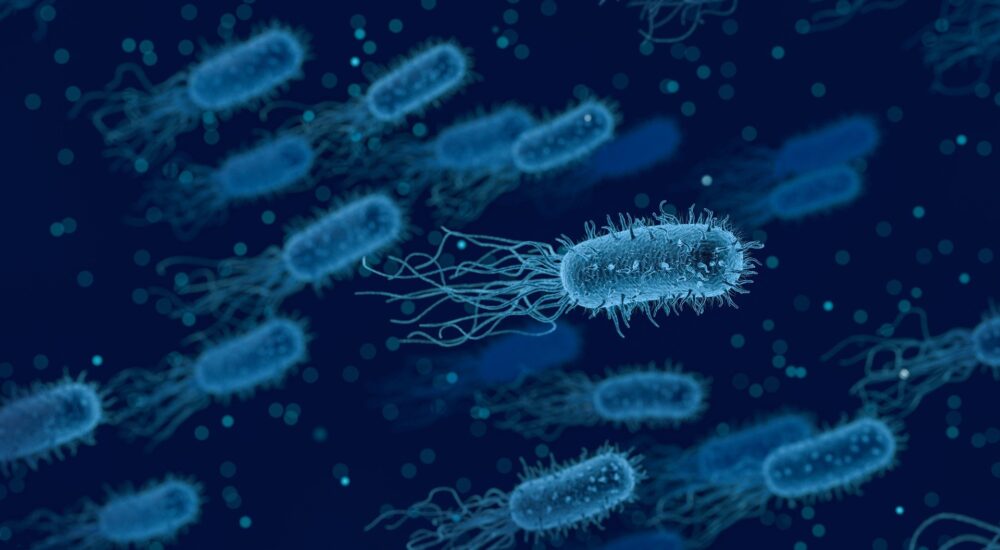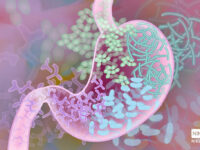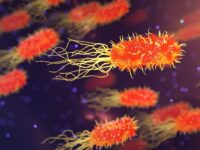Think back to the last time you gave a presentation; were you nervous? Did you lose your appetite for the day? When it was time to present, did your stomach somersault?
When considering physical responses to stressful situations, there is a clear connection between behavior and the gut. In anxiety-stimulating situations, the body can respond with gastrointestinal discomfort and can even lead to gastrointestinal disorders, including irritable bowel disorder. It’s a common phenomenon to lose one’s appetite before a stressful event, and this relationship has been found to be bidirectional; gut health may affect human mental health. This communication was coined the microbiome-gut-brain axis.
“Gut health and the gut microbiota may directly affect human mental health.”
The gut microbiota is a term describing the plethora of life that exists in the human digestive system. Nearly 100 trillion organisms live in the human gut, making bacteria incredibly important to digestion and absorption of nutrients. Microbiota can be influenced by the food and medications consumed by a person, and it communicates with the brain through a nervous connection called the vagus nerve.
The vagus nerve is significant to the gut-brain axis because it is involved in parasympathetic control of the digestive tract. The parasympathetic nervous system opposes the fight-or-flight response and is commonly referred to as the “rest and digest” system, encouraging the body to relax and recover. The vagus nerve has also been shown to have both afferent and efferent signaling ability; in other words, signals can be communicated from the brain to the gut or from the gut to the brain.
In behavioral studies performed on mice, neuroscientists Dr. Jane Foster and Dr. Karen-Anne Neufeld found that changing the gut microbiota of mice caused significant effects on their anxiety and depressive behaviors. In the presence of a normal gut microbiota, animals exhibited a reduction in anxiety- and depression-like behavior when administered probiotics. Animals raised in the absence of a gut microbiota showed reduced cognitive function in learning tasks. This evidence has revealed the possible use of the gut microbiota in treatment of anxiety and depression, but more research is needed in this field.
The gut microbiota has also been linked to brain-derived neurotrophic factor (BDNF), an important influencer on neuron survival, differentiation, and supportive memory functions. In the hippocampus, an area of the brain associated with memory, decreased levels of BDNF were shown in mouse models of infection in the gut. These mice also expressed an increase in anxiety behaviors. A probiotic treatment was shown to control BDNF levels, which identified a possible use of this treatment for anxiety disorders.
“Animals raised in the absence of a gut microbiota showed reduced cognitive function in learning tasks.”
Although most behavioral research has been performed with mice, some of the data regarding the gut-brain axis has high translational validity, which is the ability of data from animal studies to be applied to humans. Researcher Emeran Meyer and his colleagues explained that the human gut-brain axis is fundamentally different from rodents’ because expansion of the regions in the human brain involved in emotional regulation. However, new data has revealed associations between gut microbial alterations and a variety of illnesses including irritable bowel syndrome, infant colic, depression, and even Parkinson’s disease. Additionally, perinatal stress models — animal models regarding a small window of time before and after birth — have been shown to have high translational validity as well. Alterations in the gut microbiota during this window of time have been shown to contribute to adult behaviors, but more research is required in this area before it can be implemented in human clinical populations.
Overall, it has been shown that the brain and gut microbiota communicate, affecting the behaviors of an animal. So, should you eat probiotic yogurt before your next presentation? Although the mouse models may indicate that this action would be beneficial, the human brain and emotional regulators are more complex than that of a mouse. More research in this area is required before the gut microbiota can be utilized to treat mental health disorders and other illnesses.
Sources:
Trends in Neurosciences (2013). DOI: 10.1016/j.tins.2013.01.005
Journal of Clinical Investigation (2015). DOI: 10.1172/JCI76304.






